
- Home
- World
- At United Nations, Pakistan pushes for UN Charter 's oversight of Artificial Intelligence (AI)
At United Nations, Pakistan Pushes For UN Charter 's Oversight Of Artificial Intelligence (AI)
Faizan Hashmi Published September 25, 2025 | 08:20 AM

UNITED NATIONS, (APP - UrduPoint / Pakistan Point News - 25th Sep, 2025) Warning against the dangers of unregulated artificial intelligence (AI), Pakistan has emphasized that its use, especially military applications, must be "fully" governed by the UN Charter and international law.
" AI must not become, a tool of coercion, or technological monopoly," Defence Minister Khawaja Muhammad Asif told the UN Security Council on Wednesday.
"Applications, without meaningful human control, should be prohibited," he said in a high-level debate on artificial intelligence (AI) under the agenda item “Maintenance of international peace and security”.
The meeting was chaired by President Lee Jae Myung of South Korea, which holds the 15-member Council's presidency for the month of September.
In his remarks, Khawaja Asif also noted that AI is the most consequential, dual-use technology, capable of accelerating socio-economic progress, but said it was equally capable of deepening inequalities, and destabilizing international order.
"States must commit to measures that prevent destabilizing use, and pre-emptive incentives," he told presidents and foreign ministers from around the world.
"Unregulated and irresponsible use of AI enables disinformation campaigns, offensive cyber operations, and development of new types of armaments."Khawaja Asif pointed out.
"The accelerating weaponization of AI, through autonomous weapon systems, and AI-driven command and control systems, poses a grave danger."
In this regard, Khawaja Asif emphasized that in the recent conflict in the subcontinent between India and Pakistan, for the first time, autonomous munitions and high-speed dual-capable cruise missiles “were used by one nuclear-armed State against another during a military exchange - which manifests the dangers which AI can pose”.
These developments raise serious questions for the future of warfare, he stated, as AI lowers the threshold for use of force, making wars more politically and operationally feasible, and compresses decision-time narrowing the window for diplomacy and de-escalation. "AI blurs domain boundaries, merging cyber, kinetic, and informational effects in unpredictable ways."
The Charter of the United Nations and international law must fully govern the development and use of AI applications, the defence minister added.
"We must ensure that AI is harnessed to promote peace and development, not conflict and instability, "Khawaja Asif said, adding, "Let us preserve the primacy of human judgment, in matters of war and peace, ensuring that, even in an age of intelligent machines, innovation is guided by principles of morality and humanity."
Opening the debate, UN Secretary-General Antonio Guterres said that AI is “no longer a distant horizon – it is here, transforming daily life, the information space and the global economy at breathtaking speed”.
Used responsibly, AI can strengthen prevention and protection in myriad ways, including anticipating food insecurity, supporting de-mining, and helping identify potential outbreaks of violence. However, “without guardrails, it can also be weaponized”, he stressed. Citing AI-enabled cyberattacks that can disrupt critical infrastructure in minutes and threats to information integrity, he emphasized: “Innovation must serve humanity – not undermine it.”
The UN chief recalled that last month, the General Assembly established an Independent International Scientific Panel on AI and an annual Global Dialogue on AI Governance.
Addressing priorities, he stated that “humanity’s fate cannot be left to an algorithm” as “humans must always retain authority over life-and-death decisions”. Urging the Council and Member States to ensure that human control and judgment are preserved in every use of force, he again called for a ban on lethal autonomous weapons systems operating without human control, with a legally binding instrument by 2026. Similarly, any decision in nuclear weapon use “must rest with humans – not machines”, he stressed.
Yejin Choi, Senior Fellow at Stanford University’s Institute for Human-Centered Artificial Intelligence, told the Security Council that current progress in AI is too concentrated among a handful of companies and countries.
“When only a few have the resources to build and benefit from AI, we leave the rest of the world waiting at the door,” she said.
“Let us expand what intelligence can be – and let everyone everywhere have a role in building it.”
Ms. Choi urged governments and international institutions to invest in alternative approaches beyond scaling ever-larger models, arguing that smaller, more adaptive systems could lower barriers to entry.
She also pressed for stronger representation of linguistic and cultural diversity, noting that today’s leading AI models “underperform for many non-English languages and reflect narrow cultural assumptions.”
Secretary-General Guterres closed by warning that the window for effective regulation is closing fast.
“From nuclear arms control to aviation safety, the international community has risen to the challenge of technologies that could destabilize our societies – by agreeing to rules, building institutions, and insisting on human dignity,” he said.
“The window is closing to shape AI – for peace, for justice, for humanity. We must act without delay.”
The Security Council session was held on the margins of the ongoing high-level week of the General Assembly’s 80th session.
APP/ift
Recent Stories

India qualify for Asia Cup 2025 final after beating Bangladesh
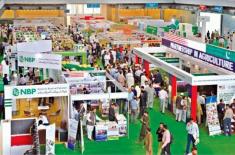
Organic growers of Parsacha emerges brightly at the grand “Agricultural Exhibi ..

PPP wins three UC vice chairmen seats in districts East, Keamari, West
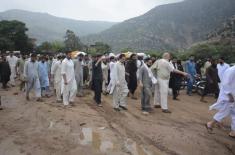
Darra Adam Khel disputes addressed in key meeting
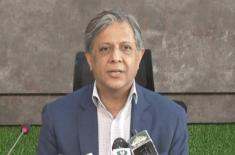
Federal Minister for Law and Justice Senator Azam Nazeer Tarar meets delegation ..
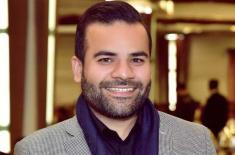
Foreign policy success strengthening Pakistan’s global standing: Aqeel Malik
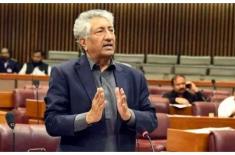
Infrastructure rehabilitation top priority after floods: Moeen Wattoo
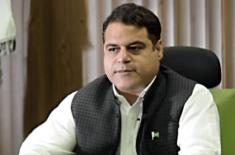
Commissioner Rawalpindi Division, Engineer Amir Khattak champions development in ..
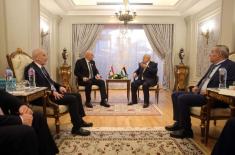
Leaders of USA, Arab League, OIC member states call for immediate ceasefire, rec ..
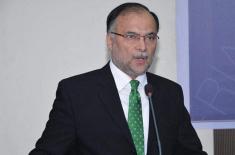
Federal Minister for Planning, Development and Special Initiatives Professor Ahs ..
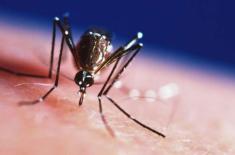
Anti-dengue measures discussed in Chiniot meeting

Rana urges PTI to hold dialogue for political, economic stability
More Stories From World
-
At United Nations, Pakistan pushes for UN Charter 's oversight of Artificial Intelligence (AI)
11 minutes ago -
Loans are not solution, world must honour climate pledges: PM Shehbaz
7 hours ago -
PM Shehbaz calls on world to honour climate pledges, says loans are not solution
8 hours ago -
Pakistan's rice exports to China increase nearly 70% in first 8 months of this year
8 hours ago -
Pakistani scholar named outstanding BRI Researcher 2025 in Beijing
8 hours ago -
Pakistan's flaxseed production may revive with Chinese high-yield varieties
8 hours ago
-
Pakistan, UK reaffirm commitment to enhance political, economic cooperation
8 hours ago -

Leaders of USA, Arab League, OIC member states call for immediate ceasefire, reconstruction plan for ..
9 hours ago -

Federal Minister for Planning, Development and Special Initiatives Professor Ahsan Iqbal highlights ..
9 hours ago -

Pakistan calls for decisive reforms to resolve debt crisis, scale up development, climate finance
9 hours ago -

Israel intensifies Gaza attacks as UN warns of mass displacement, hunger
9 hours ago -

PM reaffirms commitment to enhance bilateral engagement with Sri Lanka
9 hours ago




